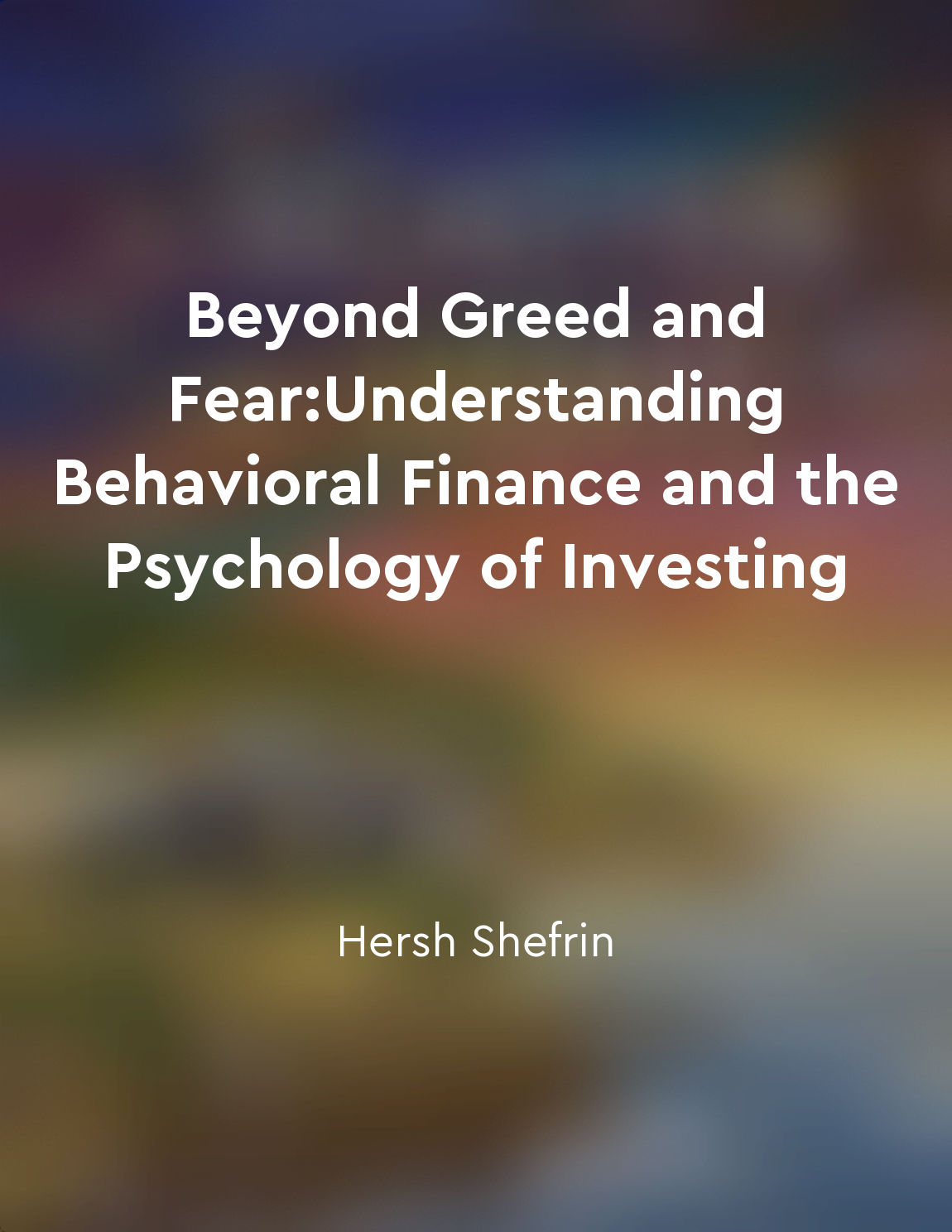Representativeness bias results in faulty judgments from "summary" of Beyond Greed and Fear:Understanding Behavioral Finance and the Psychology of Investing by Hersh Shefrin
Representativeness bias is a cognitive bias that leads investors to make judgments based on how closely an event or situation resembles a particular prototype. When individuals rely on representativeness to make decisions, they may overlook important information and instead focus on superficial similarities. This can result in faulty judgments and poor investment decisions. For example, investors may assume that a stock is a good investment simply because it is in a sector that has been performing well recently. This reliance on representativeness can lead to overlooking fundamental analysis and other critical factors that should be considered when evaluating an investment opportunity. Representativeness bias can also manifest in the form of stereotypes and generalizations. Investors may categorize certain companies or industries based on past experiences or preconceived notions, rather than conducting a thorough analysis of the specific circumstances at hand. This can lead to overlooking unique characteristics and risks that may be present in individual investment opportunities. Furthermore, representativeness bias can be exacerbated by availability bias, as investors tend to rely on readily available information or recent events when making judgments. This can result in overlooking historical data, long-term trends, and other relevant information that may provide a more comprehensive understanding of a potential investment.- Representativeness bias can cloud investors' judgment and lead to suboptimal decision-making. By being aware of this cognitive bias and actively seeking out diverse perspectives and information, investors can mitigate the impact of representativeness bias and make more informed investment decisions.
Similar Posts

Don't let emotions dictate your investment decisions
Investing in the stock market can be a daunting task for many individuals. The ups and downs of the market can evoke strong emo...
Anchoring affects how people evaluate options
Anchoring is a concept that influences how individuals assess and make decisions about various options. When people are present...
Externalities create market failures
Externalities are a common feature of economic transactions. When two parties engage in a transaction, the effects of that tran...
Loss aversion is a key concept in behavioral finance
Loss aversion, a central concept in behavioral finance, refers to the idea that individuals feel the pain of losses more intens...
Public opinion can be volatile and easily swayed
The prevailing sentiment within a society is a complex and ever-changing phenomenon. It is not a static entity, but rather a dy...
Bond markets play a crucial role in financing government and corporate activities
Bond markets are a critical source of financing for both governments and corporations worldwide. These markets serve as a mecha...
Diversification is important for risk management
Diversification is a key concept in the world of investing. It involves spreading your investments across different asset class...
The key to successful mergers lies in thorough research
The success of any merger hinges on the meticulous research conducted prior to the deal. This critical phase involves delving d...
Don't put all your eggs in one basket
The concept of spreading your investments across different asset classes is a fundamental principle of prudent investing. By di...

Brain responds to social threats
When we perceive a social threat, our brain triggers a reflexive response aimed at protecting us from harm. This response is ro...


